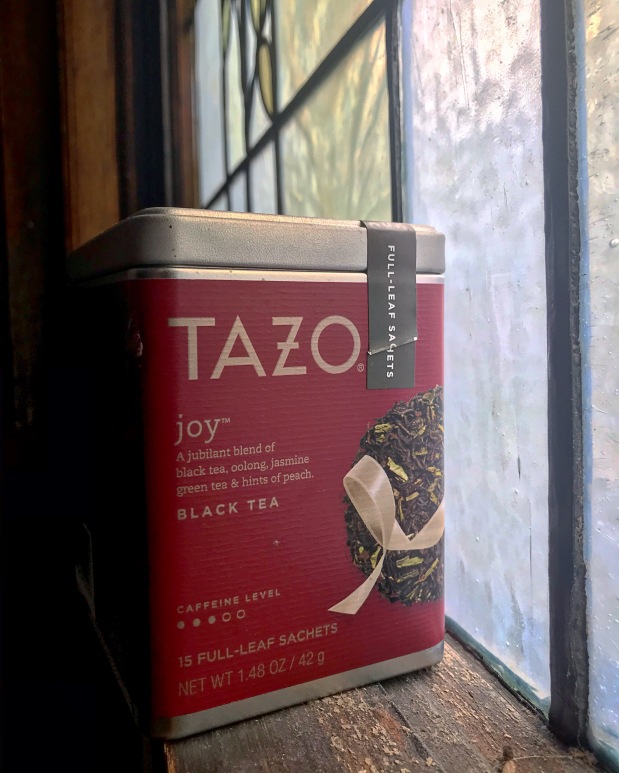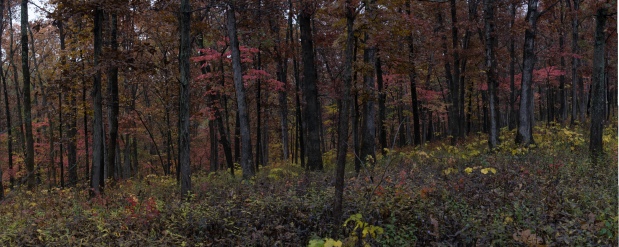Two Sonnets – The Blind Men & the Elephant
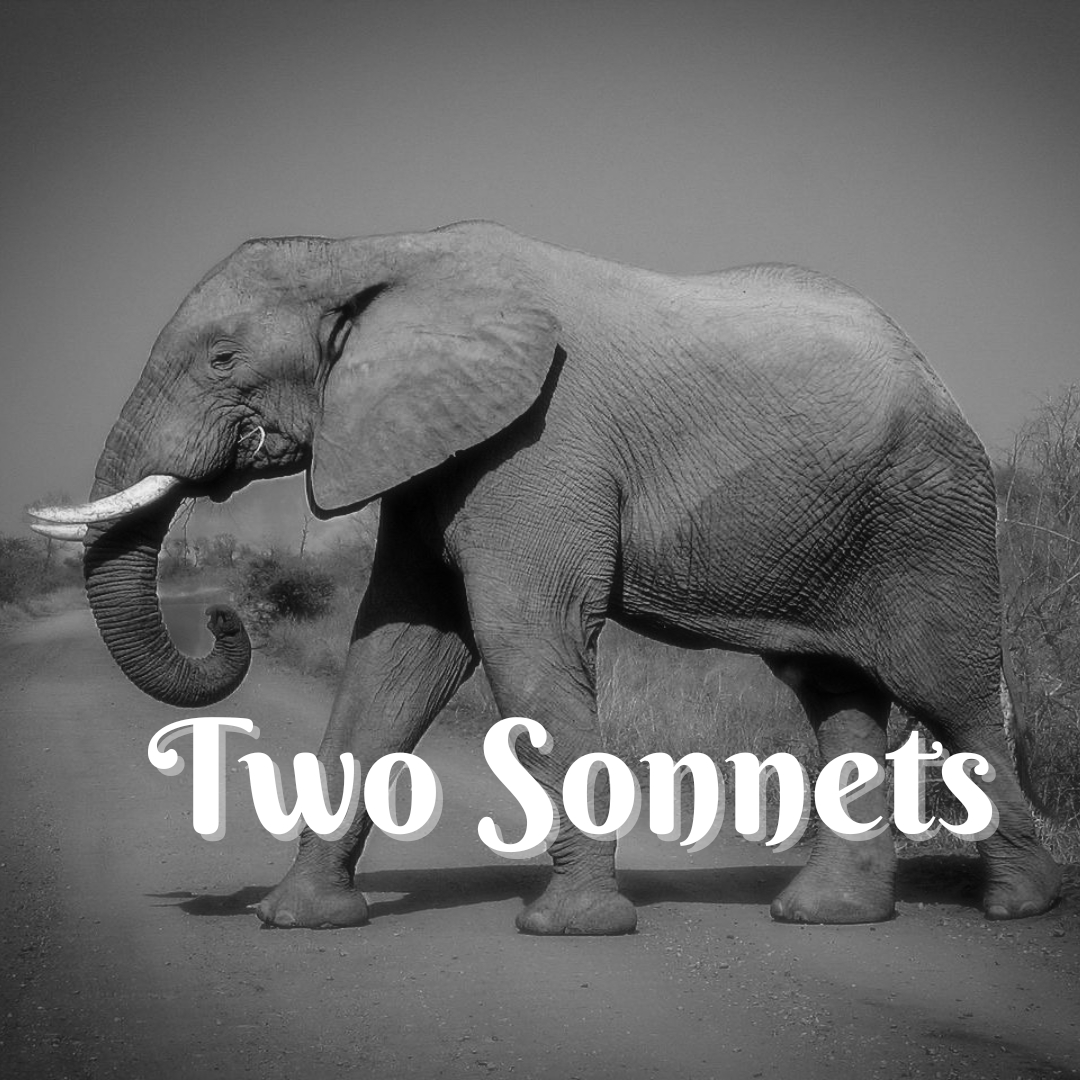
A blind man groped and grasped through darkened air
And caught in tender hands a hairy cord,
Then searched through sightless memories for a pair,
And cried, “The thing’s a rope, upon my word!”
Three comrades also shared that darkened road,
And paused to hear the outcry of the first,
Then turned with eager, seeing hands to code
For themselves the object and its worth.
The story is well known. The other three
Conclude the thing’s a wall, a tree, a snake,
When a pachyderm’s to blame. Respectively,
His tail, side, leg, and trunk feed each mistake.
And so the Eastern clerics make their claim:
The Thing is found despite misgiven names.
______________________________
While people grope and grasp through darkened air,
They know that life is not unending night.
Sun-warmed winds that caress and lift their hair
Declare the world is not dark; they lack sight.
So far the Eastern clerics’ tale’s the same,
And I will nod, man stumbles through the world,
But insist the Thing when met has but one Name.
It’s with the elephant I have my quarrel.
All tales are built on what they presuppose.
Is what is met a thing, a passive force,
That lumbers on life’s road, self undisclosed?
So claims the ancient parable of course.
Perhaps it is a who, Who reveals and speaks,
Forgives and loves and heals, and blind men seeks.
[Elephant image adapted from original image by Felix Andrews on Wikimedia Commons.]
The Ringbearer Sonnets – Another Iteration

I have been working on this series of sonnets for many years, editing and rearranging them. In previous iterations, I presented titles spelling out who was the subject of a given sonnet and who was its speaker. I have removed these, so getting one’s bearings may take a little effort; though I think that it will be effort that will be rewarded.
I have kept the fundamental structure of the sonnets the same, with four appearing before the destruction of the ring—the eucastrophe—and three after, with this imbalance being perhaps the saddest thing in all of the Lord of the Rings.
Admittedly, these sonnets may be a bit of a heavy lift, as they may necessitate some Google searches—perhaps beginning with “eucastrophe” ![]() — or an awful lot of reading.
— or an awful lot of reading.
Finally, these poems may be a bit too “on the nose” for some in the connections that I make to Christianity, but teasing that out in the sufferings of the Ringbearers was one of my primary ends.
____________
My dear Smeagol. Indeed, you still are dear
To me. My son, please hear me if you may.
Turn from the dark, from things that crawl in fear
Of light into the earth. Look to the day,
Though it may hurt you for a while. Repent
Of whatever deed it is that chills your heart.
Warmth will return; the daylight is not spent.
My son, seek light again. Come take your part
Again in wholesome meals, in wholesome talk
Around the table. I will make amends
If you will but start; just begin the walk
Towards your healing. There are much worse ends,
My dear son, than to feel chastising pain.
Smeagol, repent. Come back to life again.
____________
And we all smiled to hear the Gaffer’s son
So named. Should not one born to earth and root,
Indeed, have such a name—the “half-wise” one?
Why, then, this reaching for a foreign fruit?
Why should a gard’ner ever tend to more
Than to roots of glorious taters. Thanks be
For those, for simple fruit and flow’rs. Why put store
In more, in your fancies wild and airy?
Dear, simple Samwise you of all should know—
Strange, wondrous weeds will grow from wand’ring seeds.
Lad, be planted here. Think of only how
To care for roses. Have no other need
For wizard dreams and mountains cold and Elves,
For old-fool Hobbits who forget themselves.
____________
My dear Bilbo, you know it must be so;
The burden has moved on. It came to you
For one purpose alone, for him to go,
Full-knowing of the Dark he must walk through,
To give it up into the Cracks of Doom.
For you it was a treasure far too great.
And taken once again it would consume
You from within. And even now it waits,
Subdued within these holy walls, to rise
Again and chain the neck on which it hangs,
And drag it to the dark where its lord lies.
Your task must be to wait—not hear the clang
Of swords—but help to bear the pangs of fear,
To plead the grace of Elbereth be near.
____________
My dear Frodo, I did not ever dream
To be my heir would mean so dark a road.
But adventures never come as it seems
They ought, only at our bidding. A load
Unsought will seldom await our choosing.
But with the load the Unseen Giver also gives
Graces and beauty to soothe the losing
Of homely things. So, take now as you leave
Fair mithril for without, and for within
Fair memories of sunlit days and friends,
Of glorious Elder Days, of Elves and Men
In darkness fighting for a brighter end.
Despair not, if night falls; all will be well.
Sing still, “A Elbereth Gilthoniel!”
EUCASTROPHE AT THE CRACKS OF DOOM
Dear, Samwise, you now see you are ill-named.
True wisdom ever shoots from lowly roots.
Of those who faithful stand and seek no fame,
You now belong, to taste its well-earned fruits.
Your love of tree and earth, all living things,
Of holy Elves and song and wizard tales,
Your guileless keeping of the guilty ring,
Your simple wisdom praised in Lorien’s vale,
By Lorien’s glorious Lady and her gifts,
Bring to the Shire its healing and its rest.
With rose and oak now golden Mallorn lifts
Its leaves to bless; and Elanor, gold-tressed,
Your joy begins. So, Ringbearer, through thee,
To Iluvatar may praise and glory be.
____________
Dear, faithful tenant of my homely house,
Who melds the joys of Shire and Elven-home,
The time has come. The secret power that rose
Through you was raised, ever to be cast down.
But its failing also begins the end
Of all things foul or fair wrought by the Rings
Of Power. This home I made to blend
The good of Middle Earth with holy things
Must also pass. So, Ringfinder, now come
And taste the joy for which we long have ached.
The homely joys we leave, as such, are done,
But I perceive Iluvatar shall take
Up each reflected image of His face
And make anew a joyous, homely place.
____________
Dear Elf-friend well met here under these trees
That bloom in part because of sorrow borne
By you, and of the love and toil of he
Who, gentle, bore you up, who soon will mourn
That you will not savor the fruits of joy
Which bloom in field and hearth since Elven-home
Has stretched to bless the Shire. For pain alloys
Each joy you feel vicariously alone.
But, know, your pain has brought you close to me.
You feel the holy ache we feel who knew
Undying light beyond the Sundering Seas,
And bear a restless wound till all’s made new.
You will be healed. The shoot of Melkor’s fall
Will fall and Iluvatar be all in all.
1 Share
Like
Comment
Share
Anticipate Joy, A Christmas Hope Deferred
anticipate joy
though it may nest seeds of pain;
cancelled christmas trip
__________________
I often feel ungrown, childlike in more ways than I care to admit. One of the foremost perhaps is in still feeling acute disappointment at having an anticipated joy taken away. My kind eldest brother, who knows me very well, called today to say that a trip to Texas planned for this Christmas would not be wise given the current storms of Covid swirling around the country. It was a call that I perhaps knew was coming and contained wisdom in it that I fully accept. And yet, and yet—with so many others in this horrid year, I know—it always takes a little while for the adult me to calm the child me.
And so, to process my feelings, I said a prayer, brewed some Tazo Joy tea (which my dear sister-in-law in Texas always makes sure…
View original post 93 more words
Autumn, Elegy
From a sister blog.
Several days this week have had a coolish tinge and my thoughts turned briefly to Autumn. Such August foreshadowings have happened to me several times before, with each experience producing a deep pang of anticipatory joy. It was not so this week. Instead, dread.
The title of this piece could well have replaced its comma with an equals sign, autumn=elegy. Or perhaps one might imagine these two words appearing in the same thesaurus entry along with others: wistfulness, lament, convergence, recessional, farewell. Autumn is all those things—a fullness, a fruition, a condensation of the promise of Spring, the fecundity of Summer. Is it any wonder that it is the season for the making of jams.
And, yet, under and around this elegiac, backward gaze there also exists a forward facing foreboding, a miasma of dread for the coming winter, as the daylight dims ever earlier and the cold winds…
View original post 439 more words
Of Mountains and Mangoes and a Great Lady – Veda Samuel
A post about a dear aunt from Pakistan. From a sister blog.
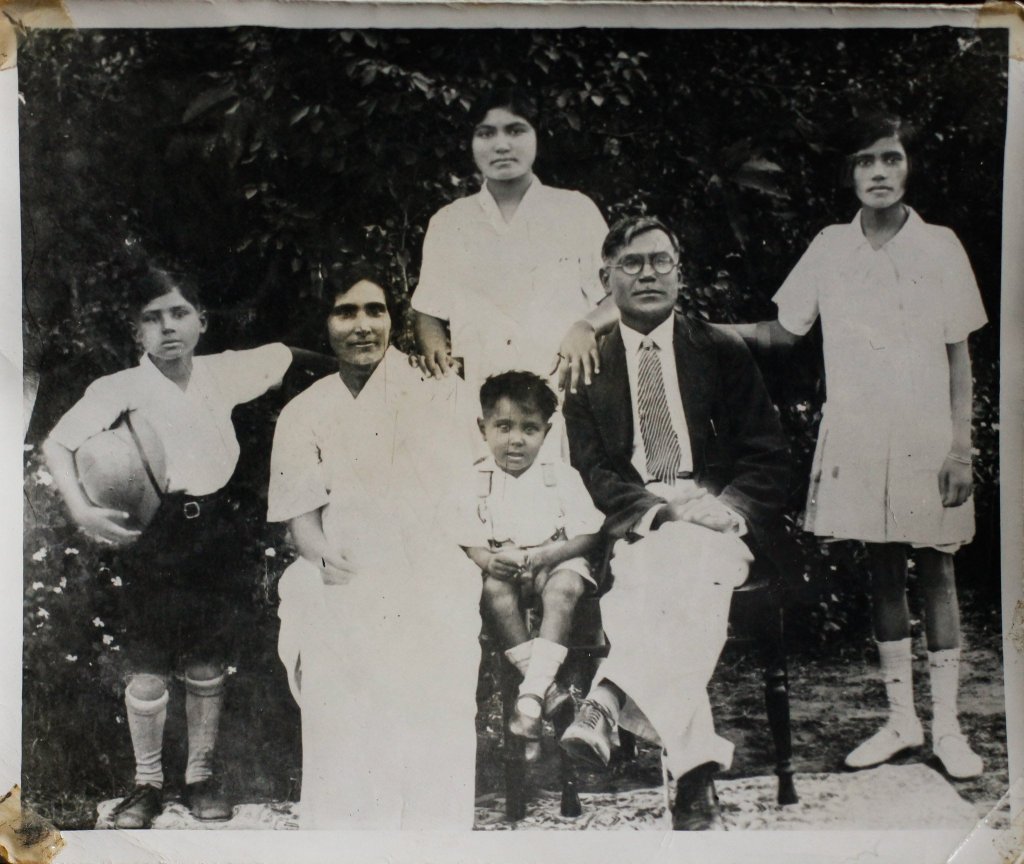
Veda Shakuntala Das was the eldest of the five children of the Reverend and Mrs. P. I. Das of Sialkot, Pakistan. And being a “Das” was a fact that she would proudly own till her dying day; indeed pride of bearing that name may just be somewhat of a besetting sin of some us Dases. Under her married name, she was Veda Samuel, the very respected English teacher at the Lahore Convent of Jesus and Mary School and the wife of kind and gentle Uncle Samuel. She was mother of Ansel and Emile Unjom, our elder cousins who we so looked up to and who would show us the sites of the great metropolis of Lahore. And she was “Phupo” Veda to my brothers and me.
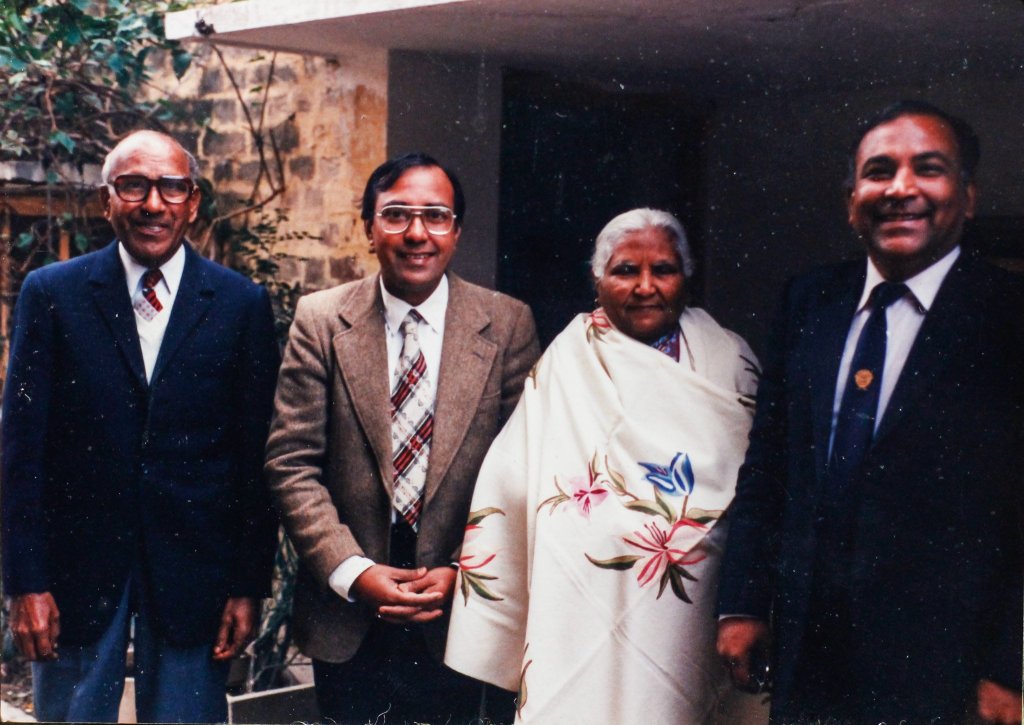
I think that you can learn at least a little about what a people hold dear by the degree of linguistic specificity that they…
View original post 1,159 more words
“hearing a gentle” – Haiku
hearing a gentle
thunderstorm roll through; dim, air-
conditioned room
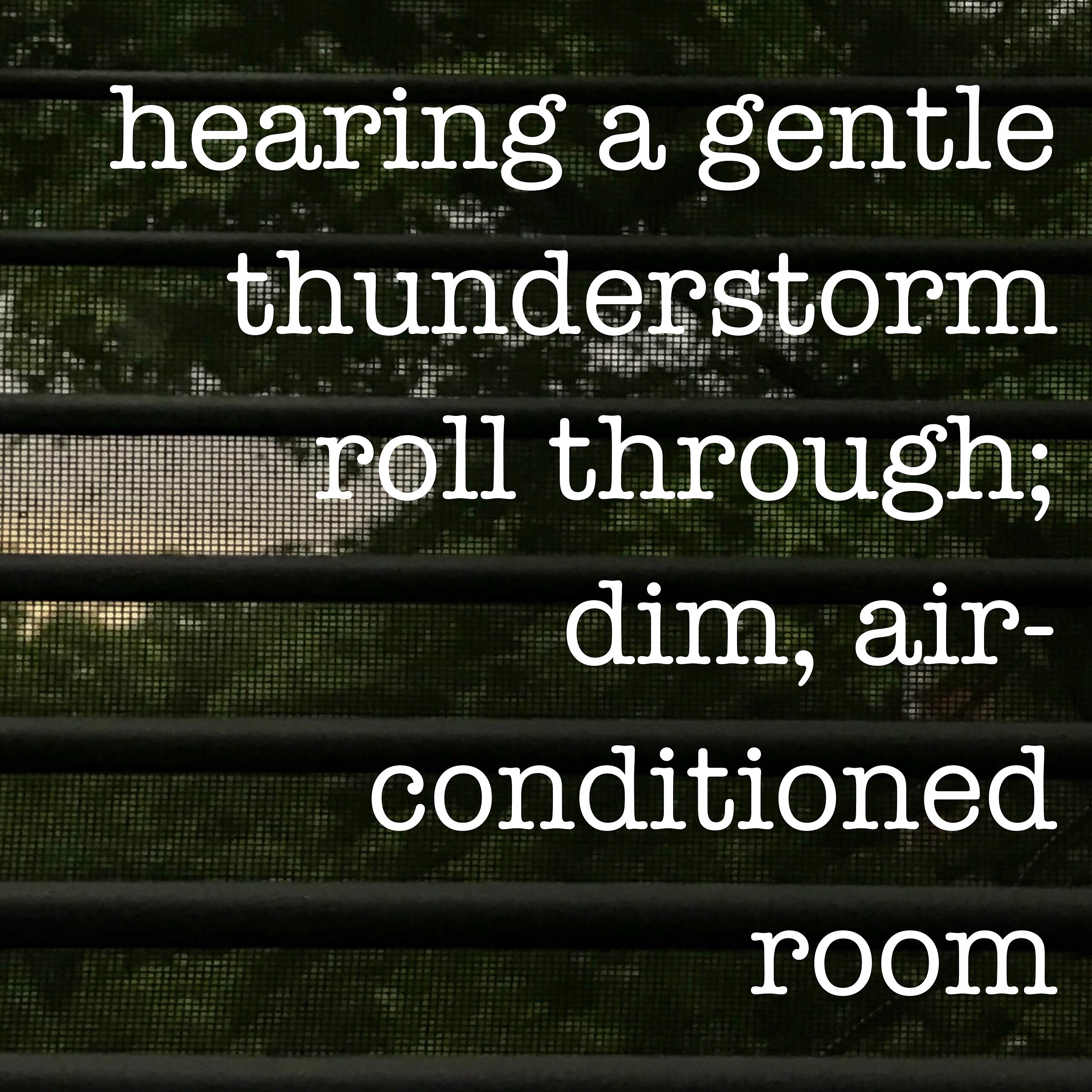
“in half-sleep I hear” – Haiku
in half-sleep i hear
peal of distant thunder; spring
helloing summer
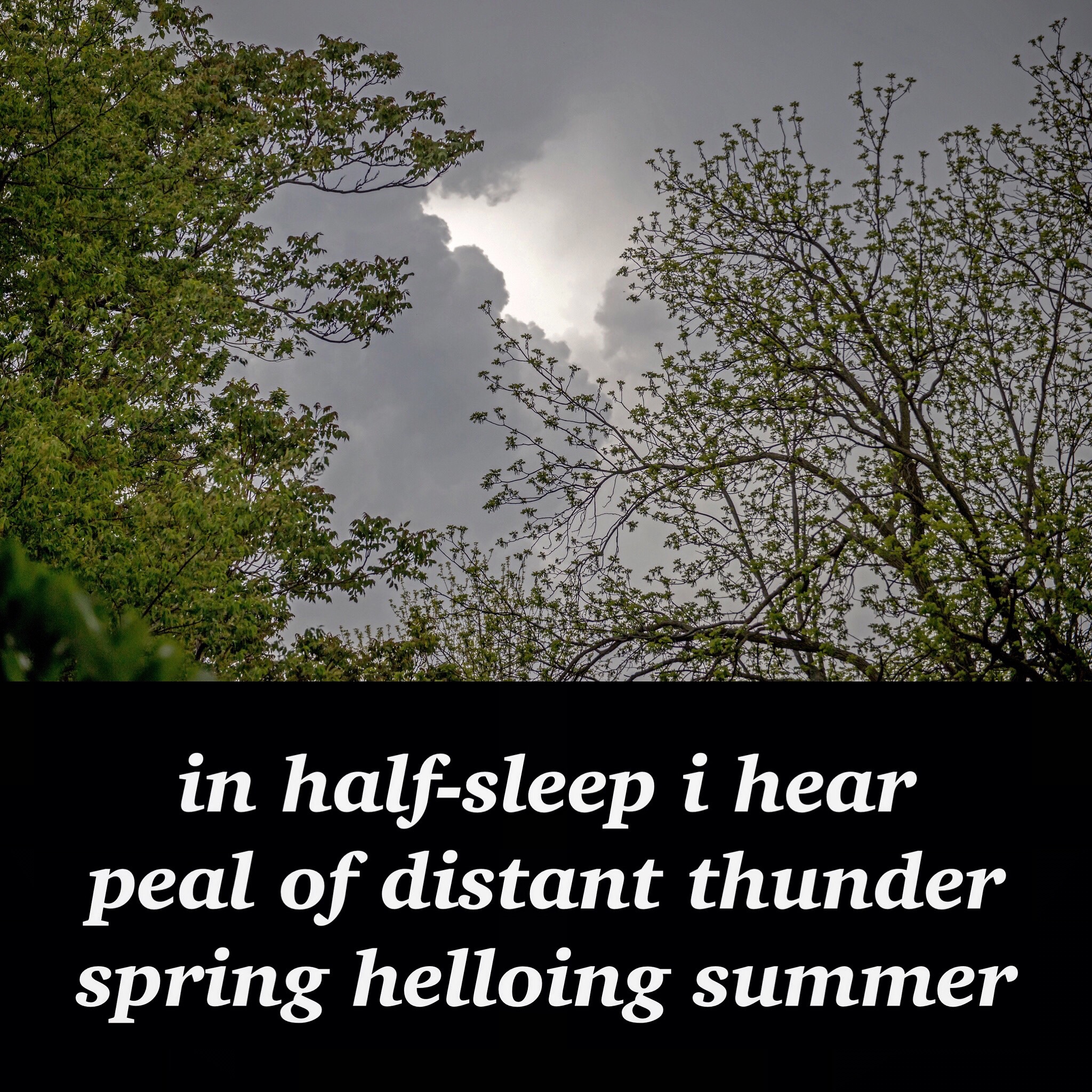
“upon first mowing” – Haiku

…or alternatively
upon first mowing
scent of grass and gasoline
promise of summer
Thoughts Upon Frying Cod
From a sister blog.
Two of us in my current shared household of four men are inveterate salmon eaters—great fans of Aldi’s economical wild caught salmon with the skin on, which we bake or fry in large batches for the week. It is a great grace that the others in our home who are not partakers do not complain. Salmon frying indoors is legitimately a cause for disharmony. Did I mention we leave the skin on, creating what one of the said gracious roommates just noted “leaves residuals for days.” Well, they don’t complain much!
And so it was somewhat of a change-up today when I set into my cast iron frying pan thick fillets of firm-fleshed, skinless cod, procured from Aldi’s somewhat more sophisticated step-sibling Trader Joe’s (it’s a complicated story). Today I kept things simple and added butter and oregano, salt and pepper. I even left off the lemon which…
View original post 1,417 more words

